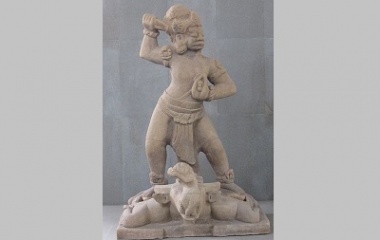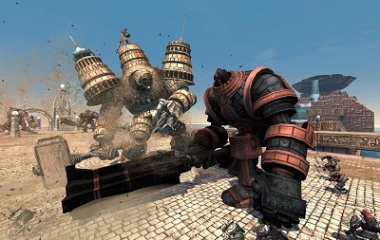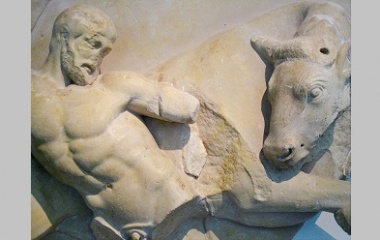The gods may be divine, but that doesn’t mean they don’t like to hang out with mortal humans from time to time. In fact, it seems that some gods just can’t get enough of human company and end up having children who are half-god and half-mortal; in other words, a demigod.
Other humans with more common parentage achieve half-god status through heroic means, usually getting promoted to demigods after their death. Regardless of how someone became a demigod, it means they are a person of extraordinary abilities.
What Is Demigod?
The word demigod and its synonyms have had different meanings over the centuries. Simply put, a demigod is a human of such heroic or special nature that he or she is seen as being partly divine.
Some minor gods have also been called demigods, although often there is a separate word for them and they are actually a small step above these part-human gods, thanks to having no humanity at all.
Today, the meaning most people think of when they hear the word demigod is limited to those mythical figures who were literally the child of a human and a god. When we’re discussing mythological heroes, this is the sort of demigod we’re usually thinking about.
In Greek and Roman mythology, the demigod often has extraordinary powers. Heracles (Hercules) was known for his immense physical strength. Achilles was impervious to harm after being dipped in the river Styx by his mother, save for the heel she held him by. That’s why we refer to someone’s one weakness as their Achilles heel even today.
Their powers were usually limited to the person of the demigod. Unlike major gods who had dominion over, for example, all war or all stormy weather, the demigod only possessed aspects of divinity.
One of the most important attributes of demigods is the fact that they are mortal. In other words, a demigod can die just the same as any human being, although the demigod is usually much stronger and can put up more of a fight. Even arguably the toughest of the demigods, Achilles, was eventually defeated. At the very least, a demigod will grow old and die. In the afterlife they do, however, have a higher position than mortals and lesser heroes.
Appearance
A demigod generally doesn’t appear particularly different to any other human being. He or she does not have non-human features, such as wings or flippers.
Some half-human creatures, such as fauns and satyrs, have also been referred to as demigods, but that is not the sense within which we’re discussing the idea here.
When producing paintings or other works of art, artists have used various methods to show that a person is a demigod. For example, they may paint them with a faint glow or some other sign that they have been set apart from regular humans. Much of the time, however, we don’t see any special sign that someone is a demigod in artworks.
While they may not have any obvious supernatural features, they tend to be examples of physical perfection. They are often larger than other humans, more muscular and almost always very beautiful. Their divinity shines through their appearance as near-perfect human beings. The demigod is an example of the maximum potential mortal humans can have.
History
The classical Greek poets Homer and Hermiod, along with the Roman poet Ovid, are best known for writing about these divine humans in their works. These stories are truly ancient. Homer, for example, is thought to have lived somewhere between the 12th and 8th centuries BCE. His surviving writings, such as the Odyssey and the Iliad, have had a huge impact on the Western world.
Later religions have had deities that are in some ways similar to Greek and Roman demigods. For example, the central figure in Christianity, Jesus, is the result of the god Yahweh making a human woman named Mary pregnant.
Origin
It’s important to understand that the gods of the Greek pantheon were more like people, with passions, desires and flaws, than they were like modern conceptions of all-knowing divinity. People like the Greeks lived very closely to the gods. They were not up in heaven, beyond the reach of mortals, but lived at the top of a mountain. They had a keen interest in what humans did, and spent a considerable amount of time physically walking among humans, often in disguise.
It therefore makes sense that stories were told of gods visiting humans and having children with them.
Modern Influence
The works of poets such as Homer cannot be underestimated when it comes to the scale of their influence on the modern world. Every story written in the West is in some way influenced by Greek and Roman mythology.
Demigods were really the first superheroes, and today the tradition is kept alive by science fiction, fantasy and comic book writers. Characters such as Superman and Spiderman may not be the offspring of a god and a human, but their superpowers and heroism are clearly a modern extension of the demigod stories from ancient times.
Even those original demigod stories are still popular today. The stories of Achilles, Hercules and others like them have been told and re-told, time and time again. It seems unlikely that the world will ever give up its love of the demigod in fiction.











maybe actually list some!?!?!?!?
i love history of greek androman and i love this